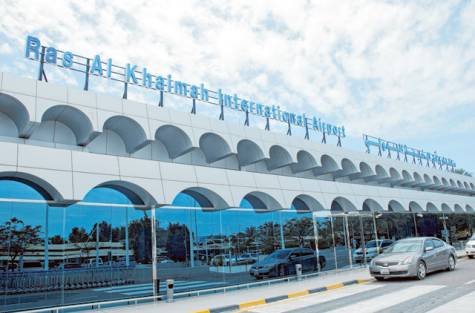RAK Airport targets low cost hub strategy

Ras Al Khaimah: RAK Airport can be transformed into a key regional hub for low cost carriers in the coming years, its top executive has said.
Mohammad Qazi, Acting Chief Executive Officer, said in an interview he wants to see the airport catering to the smaller and medium size airlines and other similar sized industry groups.
“We are very ideally designed for low cost operation … we have structured towards that kind of operation,” he said.
The aviation industry in the United Arab Emirates is currently dominated by huge international players Emirates and Etihad that operate out of their respective hubs in Dubai and Abu Dhabi. The emergence of flydubai and Air Arabia has also contributed to significant growth of the country’s region. The later has helped develop Sharjah International Airport as a reputable alternative to Dubai International. But Ras Al Khaimah’s fledging industry is yet to see the same heights.
Last month its home-base airline RAK Airways suddenly suspended services and despite confirmation from key stakeholders, appears to be finished. It is believed that the airlines two aircraft, which it leased, have been returned to its owners.
But Qazi, who has been in the top job at RAK Airport since October 2013, believes the airport can turn things around. Recently, Air Arabia signed on to launch services from the airport starting in the summer.
“When an airline establishes here like Air Arabia the network grows. When the network grows you start attracting other airlines,” Qazi said.
He said he expects more international airlines, particularly from India, to be more inclined to launch flights to Ras Al Khaimah once Air Arabia launch operations.
RAK Airport handled 500,000 passengers in 2013, Qazi said. However, there are no immediate plans to boost infrastructure. The airport is capable of handling 1.5 million passenger a year, which Qazi said will be adequate for the next 18 to 24 months.
Despite being bullish on the airports potential of attracting new airlines in the coming years, Qazi said there are no plans to increase fees.
“Its simple economics … so if there is more demand and not enough supply then we will tweak the prices but currently we are sticking with what we have,” he said.
Signing on a primary airline was just the first step for the airports former Commercial Finance Director. Next, he wants to see the airport develop its cargo operations as well as its fixed base operations and aircraft maintenance, repair and overhaul catering to the smaller sized aircraft.
“Private aviation is growing in the region and we do have a carrier that is based here, Dana Executive Jets, so we would like to see growth of that and linked with that is the growth associated with other things in aviation,” he said.
RAK Airports handles ad hoc charter flights that Qazi see’s increasing following the recent opening of major hotels in the emirate. He said that the growing tourism industry — led by the development of resorts — is likely to lead to an increase in point-to-point travel.


